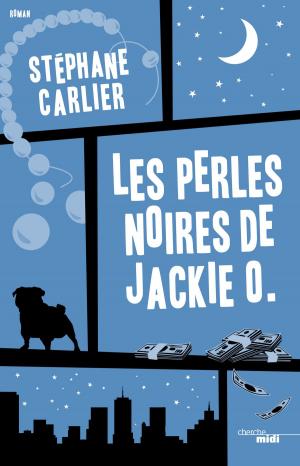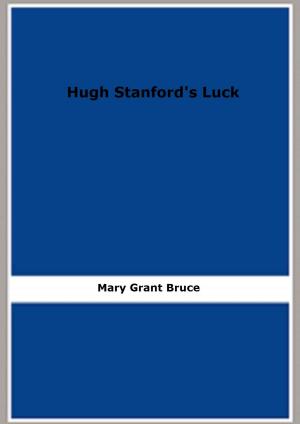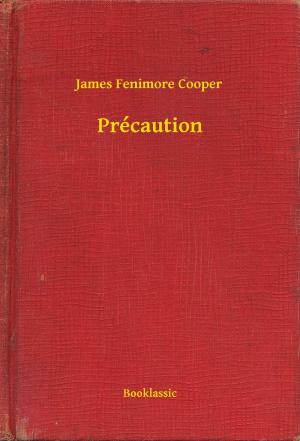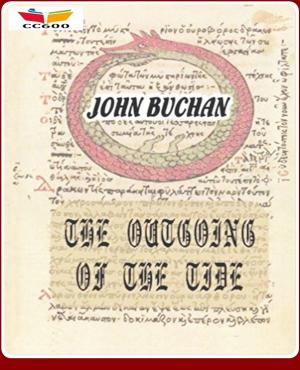| Author: | Grant Allen, P. Macnab | ISBN: | 1230000286263 |
| Publisher: | London Chatto & Windus, Piccadilly | Publication: | December 17, 2014 |
| Imprint: | Language: | English |
| Author: | Grant Allen, P. Macnab |
| ISBN: | 1230000286263 |
| Publisher: | London Chatto & Windus, Piccadilly |
| Publication: | December 17, 2014 |
| Imprint: | |
| Language: | English |
Example in this ebook
CHAPTER I. RURAL AMERICA.
Whar's Hiram, Het?' Deacon Zephaniah Winthrop asked of his wife, tartly. 'Pears to me that boy's allus off somewhar, whenever he's wanted to do anything. Can't git along without him, any way, when we've got to weed the spring peppermint. Whar's he off, I say, Mehitabel?'
Mrs. Winthrop drew herself together from the peas she was languidly shelling, and answered in the dry withered tone of a middle-aged northern New Yorker, 'Wal, I s'pose, Zeph, he's gone down to the blackberry lot, most likely.'
'Blackberry lot,' Mr. Winthrop replied with a fine air of irony. 'Blackberry lot, indeed. What does he want blackberryin', I should like to know? I'll blackberry him, I kin tell you, whenever I ketch him. Jest you go an' holler for him, Het, an' ef he don't come ruther sooner'n lightnin', he'll ketch it, an' no mistake, sure as preachin'. I've got an orful itchin', Mis' Winthrop, to give that thar boy a durned good cow-hidin' this very minnit.'
Mrs. Winthrop rose from the basket of peas and proceeded across the front yard with as much alacrity as she could summon up, to call for Hiram. She was a tall, weazened, sallow woman, prematurely aged, with a pair of high cheekbones, and a hard, hungry-looking, unlovable mouth; but she was averse to the extreme and unnecessary measure of cowhiding her firstborn. 'Hiram,' she called out, in her loudest and shrillest voice: 'Hiram!
Drat the boy, whar is he? Hiram! Hi-ram!' It was a dreary and a monotonous outlook altogether, that view from the gate of Zephaniah Winthrop's freehold farm in Geauga County. The homestead itself, an unpainted frame house, consisted of planed planks set carelessly one above the other on upright beams, stood in a weedy yard, surrounded by a raw-looking paling, and unbeautified by a single tree, creeper, shrub, bush, or scented flower. A square house, planted naked in the exact centre of a square yard, desolate and lonely, as though such an idea as that of beauty had never entered into the human heart. In front the long straight township road ran indefinitely as far as the eye could reach in either direction, beginning at the horizon on the north, and ending at the horizon on the south, but leading nowhere in particular, that anyone ever heard of, meanwhile, unless it were to Muddy Creek Dépôt (pronounced deepo) on the Rome, Watertown, and Ogdens-burg Railroad. At considerable intervals along its course, a new but congenitally shabby gate opened here and there into another bare square yard, and gave access to another bare square frame house of unpainted pine planks. In the blanks between these oases of unvarnished ugliness the road, instead of being bordered by green trees and smiling hedgerows, pursued its gaunt way, unrejoicing, between open fields or long and hideous snake fences. If you have ever seen a snake fence, you know what that means; if you haven't seen one, sit down in your own easy chair gratefully and comfortably, and thank an indulgent heaven with all your heart for your happy ignorance.
Beyond and behind the snake fences lay fields of wheat and meadows and pasture land; not, as in England, green and lush with grass or clover, but all alike bare, brown, weedy, and illimitable. There were no trees to be seen anywhere (though there were plenty of stumps), for this was 'a very fully settled section,' as Mr. Winthrop used to murmur to himself complacently: 'the country thar real beautiful: you might look about you, some parts, for a mile or two right away togither and never see a single tree a-standin' anywhar.' Indeed, it was difficult to imagine where on earth a boy could manage to hide himself in all that long, level, leafless district. But Mrs. Winthrop knew better: she knew Hiram was loafing away somewhere down in the blackberry lot beside the river.
To be continue in this ebook
Example in this ebook
CHAPTER I. RURAL AMERICA.
Whar's Hiram, Het?' Deacon Zephaniah Winthrop asked of his wife, tartly. 'Pears to me that boy's allus off somewhar, whenever he's wanted to do anything. Can't git along without him, any way, when we've got to weed the spring peppermint. Whar's he off, I say, Mehitabel?'
Mrs. Winthrop drew herself together from the peas she was languidly shelling, and answered in the dry withered tone of a middle-aged northern New Yorker, 'Wal, I s'pose, Zeph, he's gone down to the blackberry lot, most likely.'
'Blackberry lot,' Mr. Winthrop replied with a fine air of irony. 'Blackberry lot, indeed. What does he want blackberryin', I should like to know? I'll blackberry him, I kin tell you, whenever I ketch him. Jest you go an' holler for him, Het, an' ef he don't come ruther sooner'n lightnin', he'll ketch it, an' no mistake, sure as preachin'. I've got an orful itchin', Mis' Winthrop, to give that thar boy a durned good cow-hidin' this very minnit.'
Mrs. Winthrop rose from the basket of peas and proceeded across the front yard with as much alacrity as she could summon up, to call for Hiram. She was a tall, weazened, sallow woman, prematurely aged, with a pair of high cheekbones, and a hard, hungry-looking, unlovable mouth; but she was averse to the extreme and unnecessary measure of cowhiding her firstborn. 'Hiram,' she called out, in her loudest and shrillest voice: 'Hiram!
Drat the boy, whar is he? Hiram! Hi-ram!' It was a dreary and a monotonous outlook altogether, that view from the gate of Zephaniah Winthrop's freehold farm in Geauga County. The homestead itself, an unpainted frame house, consisted of planed planks set carelessly one above the other on upright beams, stood in a weedy yard, surrounded by a raw-looking paling, and unbeautified by a single tree, creeper, shrub, bush, or scented flower. A square house, planted naked in the exact centre of a square yard, desolate and lonely, as though such an idea as that of beauty had never entered into the human heart. In front the long straight township road ran indefinitely as far as the eye could reach in either direction, beginning at the horizon on the north, and ending at the horizon on the south, but leading nowhere in particular, that anyone ever heard of, meanwhile, unless it were to Muddy Creek Dépôt (pronounced deepo) on the Rome, Watertown, and Ogdens-burg Railroad. At considerable intervals along its course, a new but congenitally shabby gate opened here and there into another bare square yard, and gave access to another bare square frame house of unpainted pine planks. In the blanks between these oases of unvarnished ugliness the road, instead of being bordered by green trees and smiling hedgerows, pursued its gaunt way, unrejoicing, between open fields or long and hideous snake fences. If you have ever seen a snake fence, you know what that means; if you haven't seen one, sit down in your own easy chair gratefully and comfortably, and thank an indulgent heaven with all your heart for your happy ignorance.
Beyond and behind the snake fences lay fields of wheat and meadows and pasture land; not, as in England, green and lush with grass or clover, but all alike bare, brown, weedy, and illimitable. There were no trees to be seen anywhere (though there were plenty of stumps), for this was 'a very fully settled section,' as Mr. Winthrop used to murmur to himself complacently: 'the country thar real beautiful: you might look about you, some parts, for a mile or two right away togither and never see a single tree a-standin' anywhar.' Indeed, it was difficult to imagine where on earth a boy could manage to hide himself in all that long, level, leafless district. But Mrs. Winthrop knew better: she knew Hiram was loafing away somewhere down in the blackberry lot beside the river.
To be continue in this ebook















